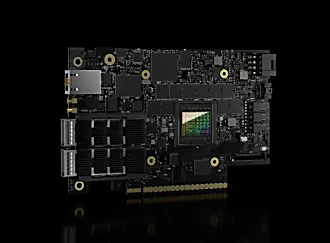anastasiavalti
on 9 February 2021
Benefits of containers for enterprises

Within just five years, Kubernetes and containers have redefined how software is deployed. Researchers expect the container market to grow by 30% year over year to become a 5 billion industry by 2022. But what is the reason behind this mass adoption of container technology in the enterprise?
1. Reduced costs
Containers are more resource efficient than virtual machines or other legacy app architectures. As they share operating systems they are more lightweight than a virtual machine, and thus require less power, memory and storage. If you have a large application estate, the cost savings from using containers can be substantial.
2. Efficiency
Additionally, containers have adopted DevOps practices, helping developers build, test and deploy applications faster. They also help build microservice architectures that are easier to iterate upon and improve in order to deliver on business goals. This makes the development lifecycle a lot more productive. As a result, containerized applications have a significantly shorter time to market, giving businesses a competitive advantage.
3. Operational consistency
One of the most important characteristics of containers is that they bundle applications with all the dependencies required for them to run. This allows them to work in the same way across different environments from a developer’s workstation during testing, to a production deployment on public cloud. This also makes it easier for enterprises to move their infrastructure to different clouds, implementing hybrid cloud or multi-cloud strategies.
4. Simplicity
Lastly, when it comes to operations, containers are significantly simpler than traditional approaches as they can skill easier and more cost efficiently. They are also significantly easier to upgrade and can handle failures more gracefully, reducing risk of impacting the entire application.
Containers and Kubernetes

While we have highlighted the multitude of benefits that containers have for the enterprise, one should be aware of the complexity they carry, especially in large scale production environments. Having to deploy, reboot, upgrade or apply patches to hundreds and hundreds of containers is no easy feat, even for experienced IT teams. Different types of Kubernetes solutions have been delivered to the market in order to address this issue.
Kubernetes has emerged as the standard container orchestration platform, giving companies the tools they need to automate their container lifecycle management. Kubernetes essentially makes containers possible at scale as without an orchestration platform organizations would not realistically be able to get the benefits of containers because the trade-offs would be too high. With Kubernetes, businesses can automate load balancing, self-healing storage, orchestration, configuration, management, and automated rollouts and rollbacks, including advanced deployment strategies like canary deployments.
However, when considering the adoption of Kubernetes in the enterprise it’s important to remember that there is no true ‘one size fits all’, but rather every organisation must choose the type of Kubernetes solution that best fits its profile. To find out more, download the whitepaper on Kubernetes deployment for the enterprise.



